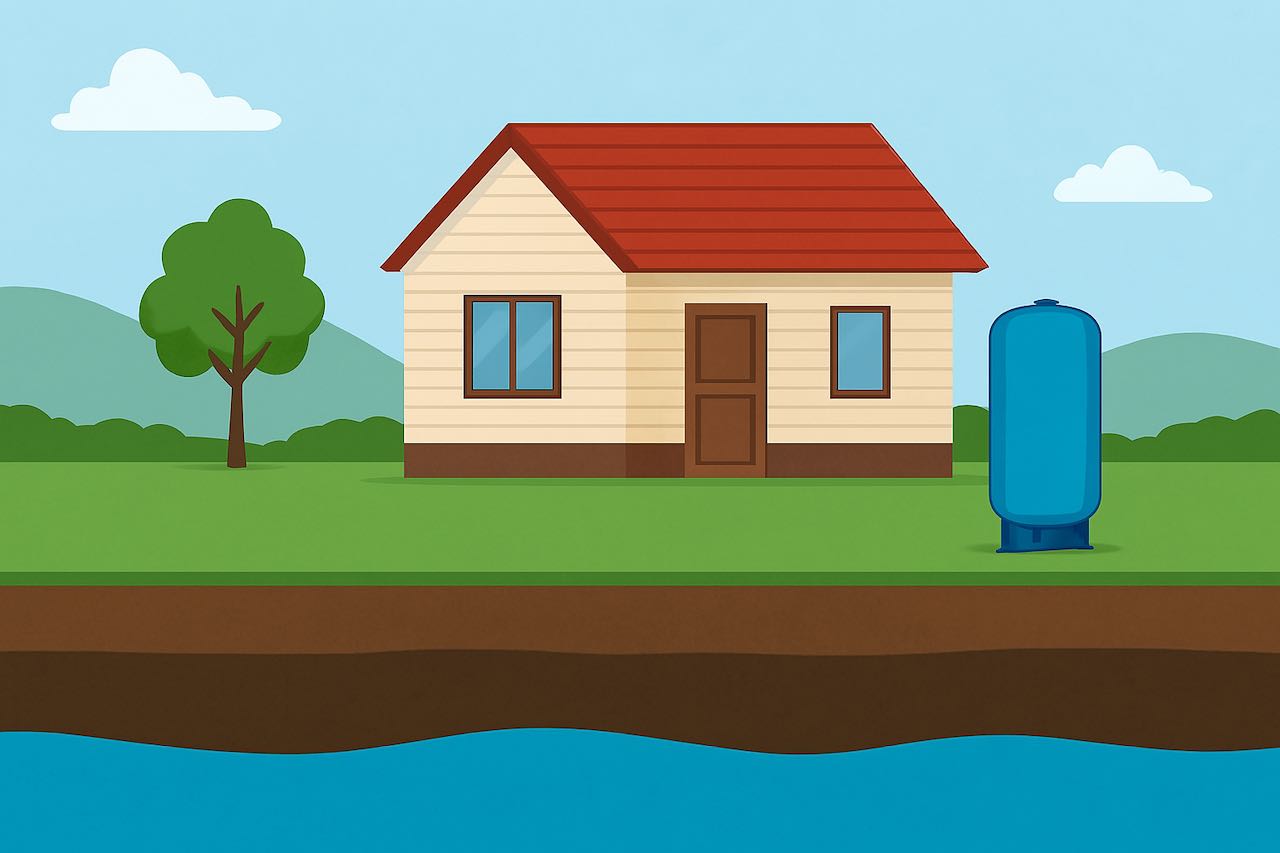Free Well Training To Learn More About Your Well Water Supply

FREE WELL TRAINING EMAIL INFO ABOUT YOUR WELL AND ITS WATER
Look after your water and be an informed consumer of professional services.
Their ten email lessons are organized by topic.
1. THE SCIENCE OF GROUNDWATER
Knowing the geology of your well provides you with an understanding of possible sources of contamination, as well as how much water your well might be able to pump. It puts the science behind why some wells might run out of water while others have plenty. It also explains why some wells are more vulnerable to contamination than others.
2. GROUNDWATER AND WELL CONTAMINATION
Now that we have an idea of how water is stored in the ground and how geology affects its movement and availability, we are going to look at how it moves to your well and what can happen as it does. In particular, we’ll discuss how water level, flow, and water quality can be affected when pumping a well. You’ll also learn how contaminants can move with groundwater, or be affected by groundwater flow and pumping. This lesson will give you the background to understand how pumping your well can influence groundwater flow. It will also give you a better idea of the value of source water protection.
3. WELL CONSTRUCTION AND RELATED ISSUES
When considering well contamination problems and risks, it’s important to know what kind of well you have and how it was constructed. Knowing how water gets into your well and from what source will help you understand what you need to do to protect your groundwater source and well from outside influences.
4. YOUR WATER WELL SERVICES
In order to understand common problems and maintenance practices related to your well and water system, you need to know the parts that make up your water system, what each part does, and how they work together to provide your water. Once we understand the components and process, we will have a better chance of being able to solve problems that arise, as well as understand why we should perform regular maintenance to protect our well and water system.
5. OPERATIONS, MAINTENANCE AND BEST PRACTICES
Now that we understand how your well works, we can move on to how to best care for your well system, including what maintenance we need to perform and what best practices we can employ to keep your drinking water safe to drink and to keep your well system working properly. We’ll also cover a few common operational issues you might encounter with your well system.
6. EMERGENCY SITUATIONS AND PROBLEM SOLVING
Performing proper maintenance on your home water system will ensure that fewer problems arise, and help you deal with unexpected situations as they occur. Sometimes you cannot prevent bad things from happening, but being prepared may minimize the damage and harm. Once you understand the components and processes involved in your system, you’ll be more able to solve problems as they come up. You’ll also get a better understanding of why regular maintenance is an important part of protecting your well and water system.
7. GETTING HELP AND FINDING LOCAL ANSWERS
The focus of these lessons is to provide the resources you need to learn more about your well and water system, with the goal of helping you become a more informed and capable well owner. Since this class reaches the entire US and its territories, there may be issues specific to your area that we won’t be able to discuss in detail or even cover at all. In this lesson, we hope to share local resources and options that may be available to you. We also hope to show you strategies for finding this information in your area.
8. GROUNDWATER QUALITY AND SOURCE WATER PROTECTION
When you understand how your well and groundwater can be influenced by surface infiltration, naturally occurring contaminants, and even water availability, you have clues to the problems your well might face. Some of these problems include drinking water quality and having enough water for supply. You’ll also have a better understanding of the risks you might have if you use a well that is in a more vulnerable situation.
9. SAMPLING AND INTERPRETING RESULTS
Collecting a water sample is one of the simplest things you can do to ensure your water is safe to drink. It’s a critical part of your overall well management strategy and provides you with some confidence that you are properly maintaining your water system.
10. WATER TREATMENT SOLUTIONS
If you have a contaminant in your well water, or a constituent that causes some aesthetic problem, there are options available to treat your water. There are literally thousands of treatment devices out there. Understanding the type of device you need, as well as knowing how different treatment devices work, will help you eliminate bad choices and protect you from expensive–and possibly unneeded–treatment. Adding treatment is a decision to make after seeking advice from a health or groundwater professional.
You can enroll in these lessons with the following link: http://privatewellclass.org/enroll
The lessons are delivered to your email address. Ten lessons will arrive by email, one lesson per week.
You can also access upcoming and past webinars on this page: http://privatewellclass.org/calendar







